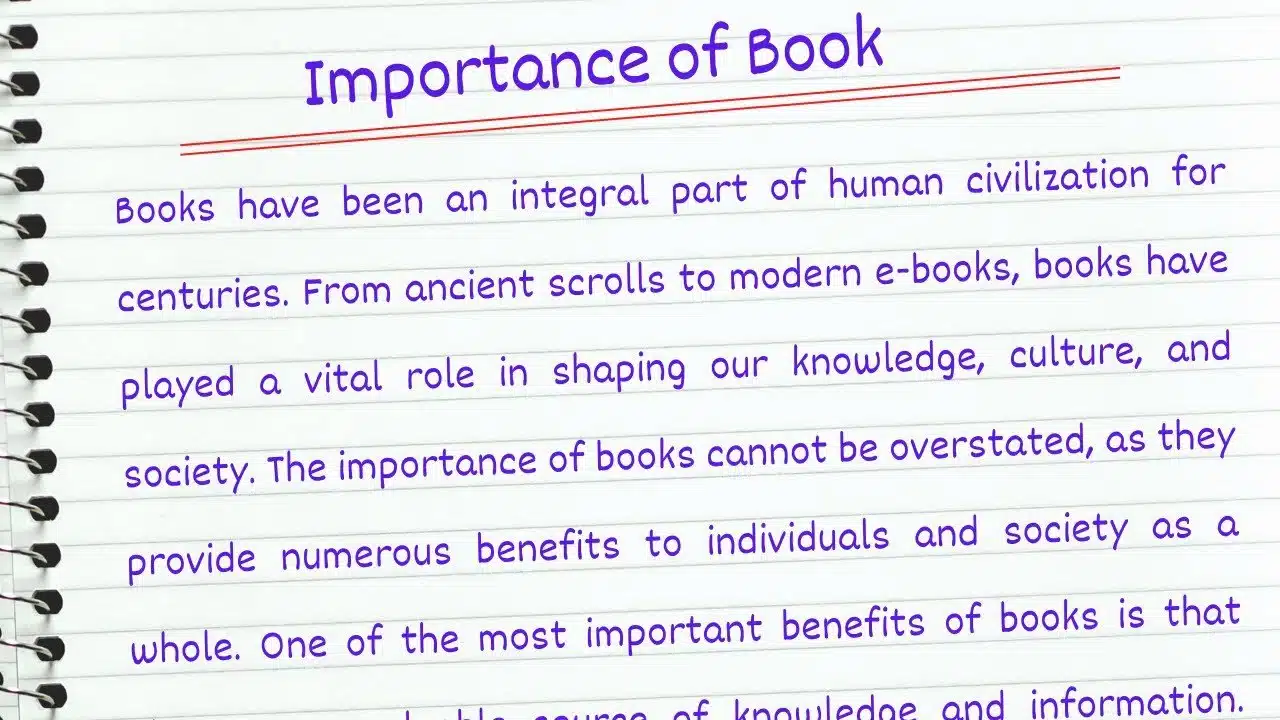Books matter to society because they preserve knowledge, fuel imagination, and foster empathy. They link us to history, providing insights into diverse cultures and eras. Reading books sharpens critical thinking skills, enabling informed decision-making. They inspire innovation and creativity, driving societal progress. In a world filled with digital noise, books offer a space for reflection and deeper understanding. This makes them indispensable to personal growth and societal development. So, why are books important to society? They are the foundation of learning and understanding, shaping individuals and communities for the better.
Why Are Books Important to Society?
Books have always played a pivotal role in shaping societies, cultures, and minds. They are more than just collections of words and ideas; they are a treasure trove of wisdom, knowledge, and experiences that can enrich and transform lives. In this article, we’ll explore the multifaceted importance of books to society, touching on various subtopics that highlight their irreplaceable value. Additionally, for those looking to make space on their shelves, we’ll also cover where to sell used college books.
Preserving Knowledge and History
Books serve as a permanent record of human history and knowledge. They document events, discoveries, and cultures, preserving them for future generations. Unlike digital media, which can be easily altered or lost, printed books provide a stable and reliable source of information.
Historical Documentation
- Books keep a record of historical events, from ancient civilizations to modern times.
- They provide firsthand accounts and detailed descriptions of past occurrences.
- Historians rely on books to study and understand different eras.
Cultural Preservation
- Books capture the essence of different cultures through folklore, myths, and literature.
- They help maintain the customs and traditions of various communities.
- Reading about diverse cultures promotes empathy and understanding.
Education and Learning
Books are fundamental to education. They are essential learning tools that aid in the development of literacy, critical thinking, and comprehension skills. Schools and universities heavily rely on textbooks and academic publications to teach students various subjects.
Enhancing Literacy
- Reading books from an early age helps children develop language and reading skills.
- Books introduce new vocabulary and concepts, improving language proficiency.
- They encourage regular reading habits, which are crucial for literacy.
Critical Thinking and Analysis
- Books challenge readers to think critically about the content they read.
- They present different perspectives and encourage analytical thinking.
- Academic books and literature often require deep comprehension and interpretation.
Mental Stimulation and Cognitive Development
Reading books stimulates the mind and enhances cognitive functions. Engaging with different genres and topics keeps the brain active and promotes mental agility.
Improving Focus and Concentration
- Reading requires focus and sustained attention, improving concentration skills.
- Books demand an immersive experience, helping readers block out distractions.
- Regular reading practices boost attention span and mental stamina.
Enhancing Imagination and Creativity
- Books, especially fiction, open up worlds of imagination and creativity.
- They allow readers to explore different scenarios and ideas, sparking creative thinking.
- Creative minds often find inspiration in stories and characters from books.
Emotional and Psychological Benefits
Books offer a sanctuary for the mind, providing emotional and psychological benefits. They can be a source of comfort, understanding, and escape, helping readers cope with stress and emotional challenges.
Therapeutic Effects
- Reading can be a therapeutic activity, reducing stress and promoting relaxation.
- Books provide a distraction from everyday worries and anxieties.
- Many people find solace and comfort in reading about relatable experiences.
Building Empathy and Compassion
- Books allow readers to step into the shoes of different characters, fostering empathy.
- They provide insights into diverse experiences and emotions, building compassion.
- Reading about challenges and triumphs can inspire and motivate individuals.
Social and Cultural Impact
Books have the power to influence society and culture in profound ways. They shape public opinion, drive social change, and promote cultural enrichment.
Shaping Public Opinion and Debate
- Books can spark important conversations and debates on social and political issues.
- They provide a platform for different viewpoints and ideas to be explored and discussed.
- Authors often use their works to challenge societal norms and provoke thought.
Driving Social Change
- Many influential books have been catalysts for social movements and reforms.
- They raise awareness about critical issues such as civil rights, gender equality, and environmental protection.
- Books can inspire action and mobilize communities towards positive change.
Entertainment and Leisure
Books are a source of entertainment and leisure, providing countless hours of enjoyment for readers of all ages. They offer an escape from reality, allowing readers to explore new worlds and adventures.
Diverse Genres and Interests
- There are books for every taste, from mystery and romance to science fiction and fantasy.
- Readers can always find something that piques their interest and keeps them engaged.
- The vast array of genres ensures that there is something for everyone.
Escapism and Enjoyment
- Books provide a way to escape from the routine and challenges of daily life.
- They offer an immersive experience, taking readers on journeys to different worlds and times.
- Reading can be a relaxing and enjoyable pastime, perfect for unwinding.
In conclusion, books are invaluable to society for a multitude of reasons. They preserve knowledge and history, enhance education and learning, stimulate the mind, offer emotional and psychological benefits, impact society and culture, and provide entertainment and leisure. The importance of books in society cannot be overstated, as they continue to enrich and transform lives across the globe.
Frequently Asked Questions
How do books contribute to personal development?
Books provide knowledge and insight, fostering personal growth and self-improvement. They enhance critical thinking, broaden perspectives, and stimulate creativity. By reading diverse genres, individuals can improve their emotional intelligence, gain empathy, and develop problem-solving skills.
What role do books play in preserving culture and history?
Books serve as vital records of cultural heritage and historical events. They capture stories, traditions, and knowledge, ensuring they are passed down to future generations. Through literature, societies maintain a connection to their past, preserving collective memories and identities.
Why are books essential for education?
Books are fundamental tools in education, providing foundational knowledge and supporting academic learning. They offer detailed explanations, in-depth analyses, and diverse viewpoints, which help students understand complex subjects, develop literacy skills, and pursue intellectual curiosity.
In what ways do books inspire change and social progress?
Books can challenge prevailing norms and inspire social change by presenting new ideas and advocating for justice. They raise awareness about important issues, motivate activism, and encourage critical discussion, ultimately contributing to societal improvements and advancements.
How do books enhance mental well-being?
Reading books can have a positive impact on mental health by reducing stress, improving focus, and providing a therapeutic escape. Engaging with compelling narratives and characters helps readers relax, stimulates the mind, and fosters a sense of connection and empathy.
Final Thoughts
Books foster critical thinking, empathy, and knowledge, essential elements for a thriving society. They serve as windows to different cultures, ideas, and histories, enriching our understanding of the world. Moreover, books provide a means for personal growth and self-reflection, helping individuals navigate life’s challenges. The importance of books to society lies in their ability to shape informed, compassionate citizens.

